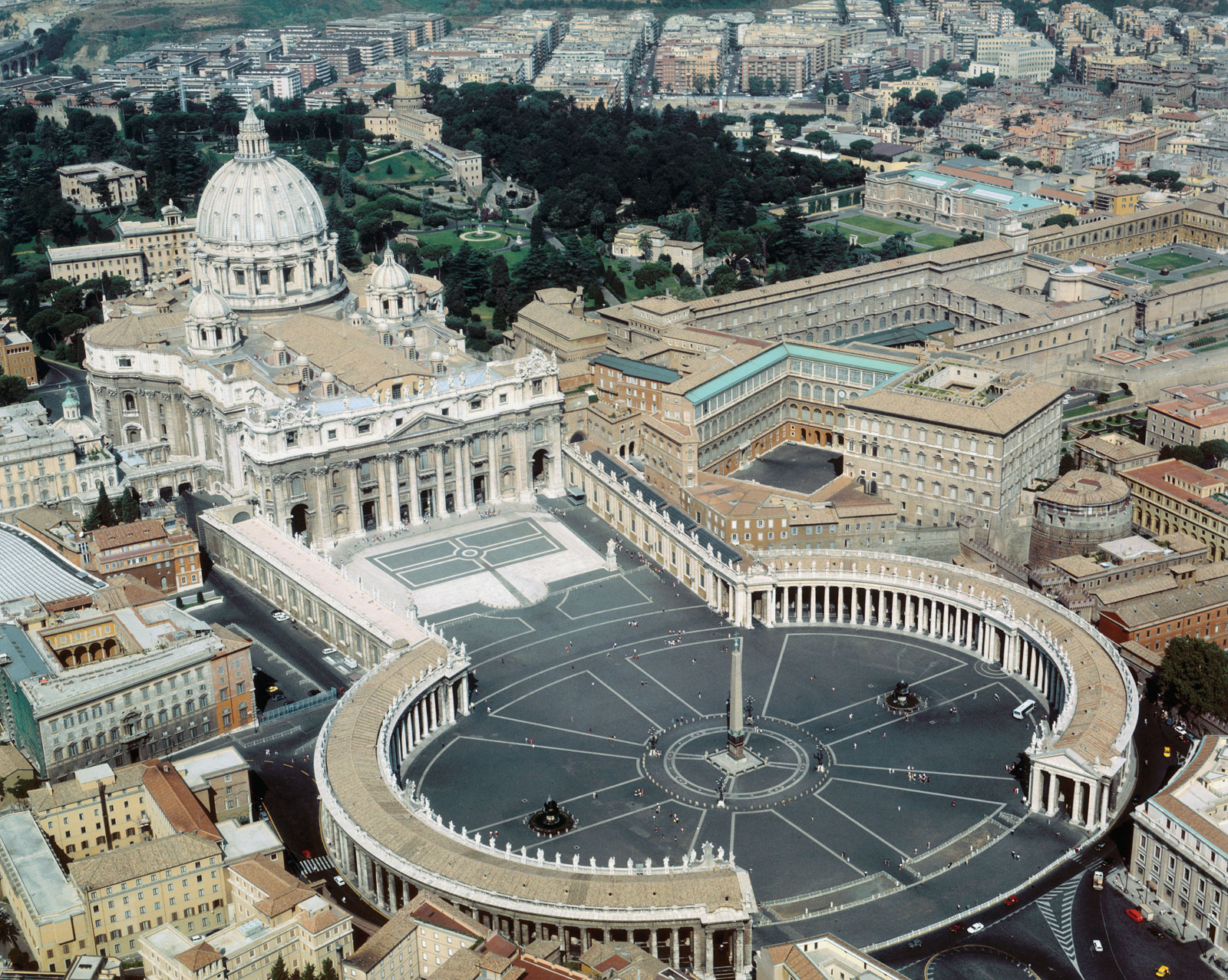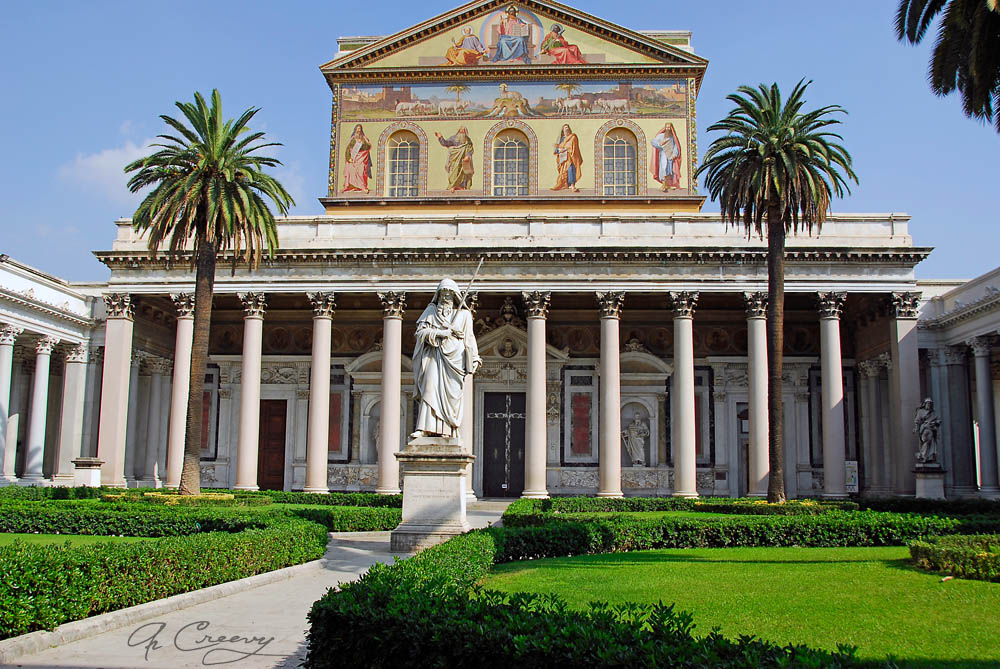Kuwait City, 29 June 2014
Homily of the Apostolic Nuncio
His Grace Archbishop Petar Rajič
Acts 12:1-11; 2 Tim 4:6-8.17.18; Mt 16:13-19
The solemnity we celebrate today commemorates two great saints, Peter and Paul, who were both apostles, founders of the first Christian communities and who became martyrs for Christ in the city of Rome, during the times of the ancient Roman Empire, the greatest civil power on earth at the time. The Church of Rome and indeed the faithful through the world celebrate the example of these two great martyrs who established the foundations of the Church as one, holy, Catholic and Apostolic Church. Therefore, on this special day we wish to thank God for choosing these two apostles to be at the service of our Lord Jesus in the Church.
Peter was a simple fisherman, chosen by Jesus to follow him and become the leader of the apostles. This came about during the conversation the Lord Jesus had with his disciples near Caesarea of Philippi, which we heard in today’s Gospel reading. In reply to Jesus’ question Peter spoke out personally and on behalf of the twelve and recognized in this Galilean from Nazareth not just an ordinary man, but indeed the Christ, the Son of the living God. Upon listening to words of Jesus, seeing the miracles he performed, as well as his living example, Peter came to the most important discovery of his life, for he recognized in Jesus, the Christ, the Anointed One of God, the Promised One of the Lord.
The readings today describe the difficulties that both Peter and Paul experienced during their lives and those of the first community of faithful. Peter was imprisoned by Herod while he was still in Palestine, yet while he was in prison, earnest prayer for him was made to God by the Church. We can see here that from the times of the apostles, the beginnings of the Church, the faithful prayed for their shepherd, their leader and bishop. This is an activity that has not ceased over the centuries, for in every celebration of the Eucharist the Church prays for the Holy Father as well as the local bishop.
Peter later on was briefly in Antioch, and then travelled to Rome and became the head of the local Church and its first bishop. Since it was in the city of Rome and more precisely on the Vatican hill that he died upside down on a cross and was buried there, every one of his successors as the bishop of Rome throughout history and to this very day is known as the Pope, the visible head of the Church on earth. Our Lord Jesus Christ will always remain the only true Head of the Church, but the successors of Peter have remained the visible leaders of the Church on earth over the centuries.
Paul was an overly zealous Jew who persecuted the first community of faithful and even participated in Stephen’s stoning to death. However, through the grace of God he was converted and became an intrepid herald of the Word of God. After his conversion he spent the rest of his life making many travels and became known as the apostle of the nations and during his three great missionary journeys he preached the Good News of the Gospel to many pagan nations.
Paul was a man who never gave up, who remained faithful to the Lord, despite many hardships and tribulations, who was happy to suffer for Christ, even up to death. The apostle recognized that all of this was a gift which he had received from the Lord who stood by him and gave him strength. Everything Paul received was a grace from God and he firmly believed that the same Lord who had called him out of darkness into his light, would in the end reward him for his service and faithfulness. Due to his convictions Paul was able to calmly accept his imminent death by confessing: I am already on the point of being sacrificed; the time of my departure has come… and he continued on with great hope and trust there is laid up for me the crown of righteousness… which the Lord will award to me on that Day. St. Paul was martyred in the outskirts of Rome and his remains are buried under the Basilica dedicated to him outside the ancient walls of the ancient city.
The Holy Father the Pope. It is fitting for us remember the Holy Father today on this solemnity, since the Pope is the Successor of Peter and remains the visible source and foundation of the unity both of the bishops and of the whole company of the faithful (Catechism of the Catholic Church 882).
The Papacy was established by Christ and entrusted to the apostle Peter and has remained to this very day our visible symbol of unity as Catholics. The Lord himself established his Church as a hierarchy. Even though we have a defined and structured hierarchy, is it a hierarchy of service and the Pope is often called the “Servant of the Servants of the Lord”. His primary role is that of serving the entire community of the faithful through his teachings, instructions and homilies; through the powers given to him, by word and example, to confirm all believers in Christ in their faith. We should often thank God for choosing such great men of faith to the Papacy, hence let us keep our current Pope in our daily prayers.
Our faith is a great gift which we have received from God. When Peter came to the great discovery and recognized in Jesus the Christ, he was told that neither flesh nor blood revealed this to him, but only the Father in heaven. We too recognize this truth that the faith we profess is a gift which we have received through the Church which is the custodian of faith in Christ. God has revealed himself to the world in Jesus Christ and we have responded to his invitation with our “yes”.
Yes, today we wish to profess individually and as a community, that we too believe as Peter and Paul did, that Jesus Christ is the Son of the living God!
Yes, we believe that the Church was established on the rock of Peter’s faith and that she continues to uphold and guard the faith through his successors the Popes.
Yes, we too wish to serve our Lord and God in his Church by remaining faithful to the faith of the apostles Peter and Paul, by witnessing for Christ with our lives that we belong to Christ and the Catholic Church.
Yes, we want to reconfirm our commitment to follow the Lord Jesus in our own proper vocation, making use of the gifts of the Holy Spirit we have received, towards the building up of the Church of God which shall always remain the mystical body of Christ.
Saint Augustine once said that these two apostles “saw with their own eyes the one they preached”. As living stones in the modern Church, we wish to preach with our words and actions our belief in Christ, who we recognize with the eyes of faith as the Son of God, in order to journey with him throughout our lives and remain with him in eternity.
 St. Peter’s Basilica and square – Vatican City
St. Peter’s Basilica and square – Vatican City
 Basilica of St. Paul Outside the Walls – Rome
Basilica of St. Paul Outside the Walls – Rome

